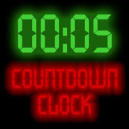
Rust Law LLC 610.821.0484
What is a Last Will and Testament (a/k/a Will)?
Under Pennsylvania law a valid and enforceable Last Will & Testament (a “Will”) is a written document in which the writer (the “Testator” [male] or “Testatrix” [female] ) directs how he or she wants his or her debts paid and assets distributed upon death and it is signed by the Testator/Testatrix in the presence of two disinterested witnesses who attest to identity and soundness of mind of the Testator/Testatrix via their signatures with a licensed Notary Public attesting by signature and seal to the validity of the signatures and the identity of the Testator/Testatrix and the witnesses
While a properly executed, witnessed and notarized Will is a legally enforceable document, it is not filed with the local county Register of Wills Office until the death of the Testator/Testatrix. Typically, the Testator/Testatrix will retain the original of the signed document, but he or she may elect to have the attorney who drafted the Will; retain the original of the Will. In any event, the drafting attorney will keep a copy of the signed Will on permanent file and in the event the original cannot be found, the attorney will be able to attest to the validity of the copy before the local Orphans Court.
Focus on estate tax planning is important only to those individuals with over $11.58 million dollars in taxable assets and those married couples with over $23.16 million dollars in taxable assets. For the vast majority of people, mitigation or avoidance of federal estate taxes is not an issue, leaving only the matter of Pennsylvania inheritance taxes as a tax planning concern.
The primary objective of most people in the writing and execution of a Will is to direct the named Executor [male]/Executrix [female] to administer his or her estate (all assets owned and debts owed by her or him at death) in accordance with the terms and conditions of the Will, which typically provides the following information and instructions:
- Who is to be considered a member of the Testator/Testatrix’s family entitled to be a beneficiary under the Will;
- Instruction to pay all non-death taxes and debts of the Testator/Testatrix.
- Direction to make specific bequests (gifts) of assets (“off of the top” so to speak) to designated individuals or organizations.
- Direction as to whom or what the personal property of the Testator/Testatrix is to be distributed
- Instruction to pay death taxes (Pennsylvania inheritance taxes in most cases);
- (In the case of a married couple) Direction as to the distribution of the joint assets of a husband and wife in the event of their simultaneous deaths;
- Direction as to whom the rest of the estate assets (the “Residual”) are to be distributed;
- Naming and appointment of fiduciaries (parties entrusted to do certain acts):
- Executor/Executrix of the Estate of the Testator/Testatrix
- Successor Executor/Executrix
- If appropriate, Guardian or Guardians of minor children or elderly parents
- Successor Guardian or Guardians of minor children or elderly parents;
- Executor/Executrix of the Estate of the Testator/Testatrix
- Directions as to the administration of the estate and accounting for its assets and liabilities;
- Enumeration of the powers possessed by the named fiduciaries; and
- Definitions and miscellaneous provisions
If the reader would like to learn more about a valid Last Will & Testament under Pennsylvania law, he or she is invited to use this Blog to ask his or her questions of Attorney Robert N. Rust III or Attorney Alicia E. Emili of Rust Law, LLC.
















